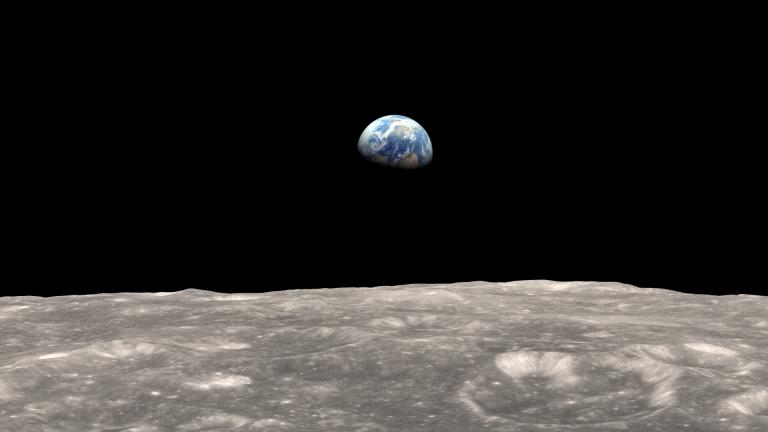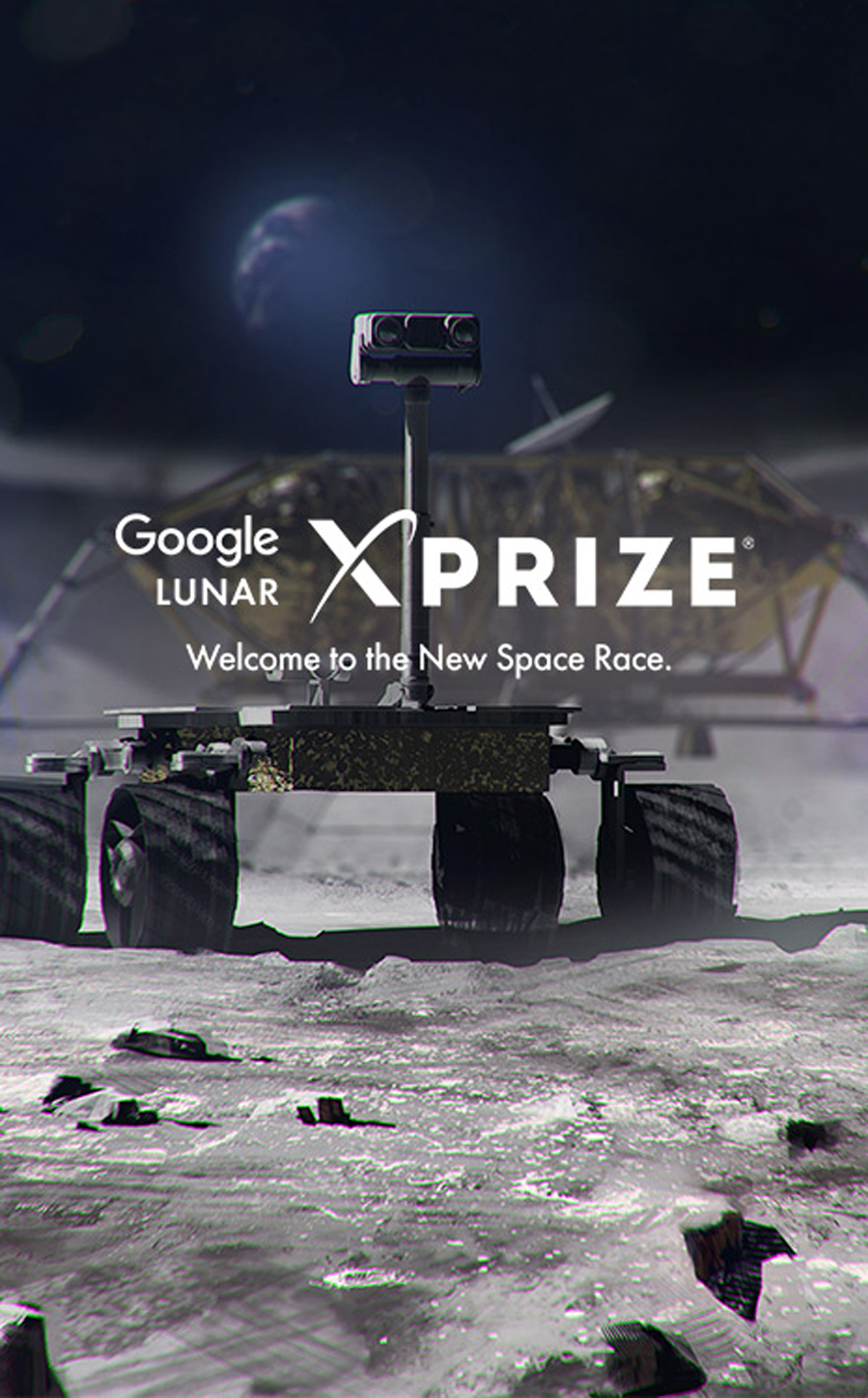 News
NewsRace over, lots of winners
The Google Lunar X-Prize race to the Moon for non-government groups has finished, without a winner of the grand prize of $30 million. But the competition has made a difference.
 News
NewsThe Google Lunar X-Prize race to the Moon for non-government groups has finished, without a winner of the grand prize of $30 million. But the competition has made a difference.


The goal: a lander and rover on the Moon, able to send back images.
Image Credit: Google Lunar X-Prize
The Google Lunar X-Prize race to the Moon for non-government groups has finished, without a winner of the grand prize of $30 million. But the competition has made a difference.
Earlier this year, the organisers of the Google Lunar X-PRIZE accepted that none of the five teams remaining in the competition would be able to reach the Moon by the deadline of 31 March 2018 and the Grand Prize of $20 million would not be awarded. Peter H Diamandis and Marcus Shingles of XPRIZE expressed their regret but pointed out: "This literal “moonshot” is hard, and while we did expect a winner by now, due to the difficulties of fundraising, technical and regulatory challenges, the grand prize of the $30M Google Lunar XPRIZE will go unclaimed."
They acknowledged ten years of sponsorship by Google and celebrated the goals of the project that they felt had been achieved: catalysis of commercial exploration of space, and changing the expectations of the public about who can explore space. Thanks to this competition, a commercial space industry has begun in India, Malaysia, Israel and Hungary, with the associated boost to jobs, not to mention the aspirational benefits for young people. The teams competing to launch for and land on the Moon – SpaceIL (Israel), Moon Express (USA), Synergy Moon (International), TeamIndus (India) and HAKUTO (Japan) – have also raised $300 million in corporate sponsorship, government contracts and venture capital. There has even been a victory against the necessary red tape, with one of the finalist teams, Moon Express, getting the first "Mission approval" from the US government to launch a private spacecraft beyond Earth orbit.
But don't give up on the hardy teams who, having invested a decade in the project, have mostly said they plan to continue. For some of them such as SpaceIL, that means seeking more investment, but other teams such as Moon Express and Hakuto have made their Google Lunar XPRIZE entries part of a wider space programme and intend to continue without the constraint of the 31 March deadline.
All in all, it's a reminder that getting the the Moon with a working lander is difficult. But it's also a hint that maybe, just maybe, you don't need to be NASA to do it. Maybe the new approaches to the problem demonstrated in this competition so far will achieve the goal in 2018, and even become the new normal in space exploration in the coming decade.
If you would like to submit an article to A&G Forum then please go here.